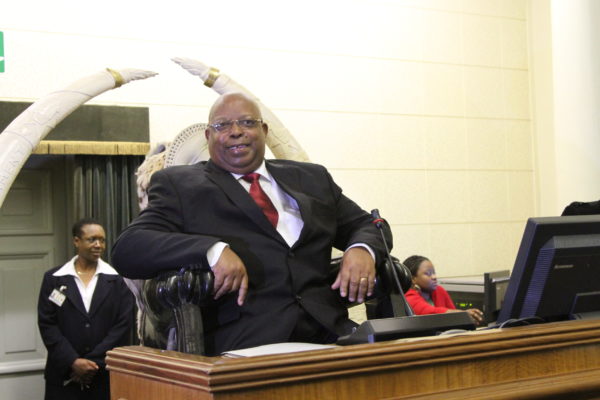
REPORTS that Speaker of the National Assembly Jacob Mudenda blocked members of Parliament from forming an ad hoc committee to investigate venality at public and private institutions are shocking.
NewsDay Editorial
The move itself defeats the foundation of the legislature and the country’s Constitution.
Mudenda told MPs that the only institution empowered to investigate dishonesty cases was the Zimbabwe Anti-Corruption Commission (ZACC) as provided under sections 254 and 255 of the Constitution which established ZACC and spelt out its terms of reference.
The ruling nullified a motion that had been adopted earlier where MPs had resolved to set up an ad hoc committee to probe cases of corruption in both private and public entities with a view to bring the culprits to book.
The motion on corruption had been moved by Kambuzuma MP Willias Madzimure (MDC-T) and further amended by Mutasa South MP Irene Zindi (Zanu PF). Interestingly when the motion was introduced and debated in the House, it was supported by MPs across the political divide.
One wonders why Mudenda allowed the debate in the first place. The Speaker must be condemned for filibustering. His actions are very questionable and we urge him to rethink his position.
It is true that ZACC is according to the law mandated to investigate corruption issues in the country. But his argument does not hold water because he is fully conscious of the challenges ZACC is facing.
- Chamisa under fire over US$120K donation
- Mavhunga puts DeMbare into Chibuku quarterfinals
- Pension funds bet on Cabora Bassa oilfields
- Councils defy govt fire tender directive
Keep Reading
Trying to be academic by claiming that the Parliament Standing Rules and Orders Committee sat on Monday and concluded that it was ultra vires the Constitution for Parliament to investigate corruption as it would encroach upon the activities of ZACC is but a tired cliché.
Because of Mudenda’s actions, Parliament’s integrity has been thrown into tatters as the anti-corruption commission itself has in the past admitted that it has failed to investigate serious allegations because it lacked legislative teeth.
It is true that by design, ZACC is incapacitated and its failure to investigate all graft-related issues involving the ruling Zanu PF party politicians has delivered a blow to government’s tough-on-crime credentials, suggesting weak and vague legislation has left it unable to investigate and expose serious corruption.
There have been corrupt-conduct allegations against top government officials where ZACC has not felt able to commence investigations because of threshold restrictions of a financial nature. This constraint has possibly undermined the ZACC’s ability to perform and achieve its principal objects and functions.
So Mudenda’s ruling raises concerns that the legal threshold for investigations are vague, too high and, therefore, liable to challenge in the courts or in political circles. And corruption by public officials could be falling through the cracks.
Yet the establishment of ZACC represented a core promise by the government. But questions have been raised about the need for prima facie evidence of indictable offences before investigations can be launched, and the narrow definition of corruption.
And unlike anti-corruption bodies in other jurisdictions, the commission lacks powers to investigate lesser, but potentially serious allegations of misconduct in public office, including for MPs.
The government has long argued that the role of the agency should be to investigate only serious corrupt conduct, claiming the offence of misconduct in public office should be dealt with by other agencies, including the police and the Ombudsman.











